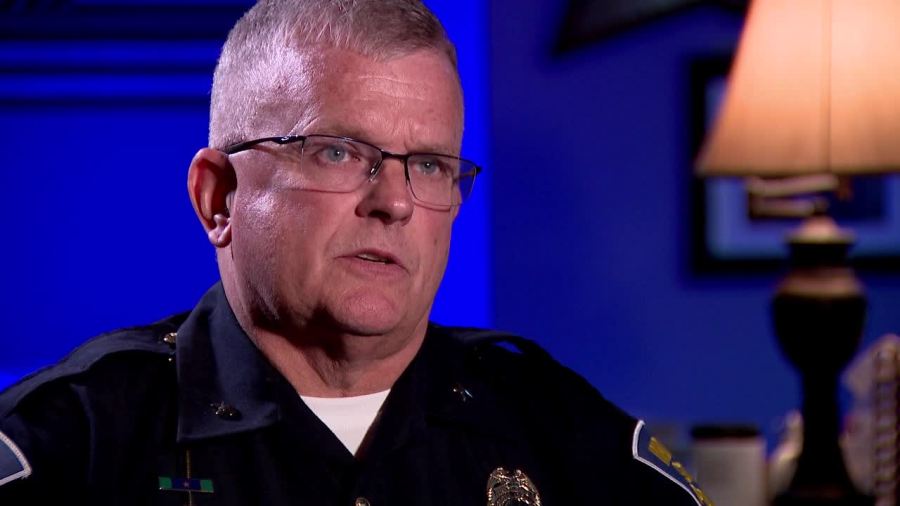Indiana’s top cop on solutions for crime in the capital city

(FOX59/CBS4) — “IMPD is tired,” said Indiana State Police Superintendent Douglas Carter.
And that has him concerned.
“I would say what we’re seeing right now is unprecedented,” he continued.
Carter was talking about the level of violence in Indianapolis and around the state. In the capital of Indiana, homicides are on pace this year to be greater than or equal to 2020-2022, the worst years in the history of Indianapolis.
“When I’m traveling through and engaging with people at our posts and in cities and towns in the state, they’re paying attention to Indianapolis,” Carter said. “And they’re afraid of it.”
As an example, the ISP Superintendent pointed to a recent trio of weekend shootings.
“100 rounds were fired in Broad Ripple,” he said. “And not a whole high coverage because we’ve gotten numb to it.”
The shootings happened on May 5-7, leaving residents in the popular city neighborhood shaken. Additional officers and license plate reader technology were brought into the area.
But soon, shootings and police calls took officers to other parts of the city.
Carter said the regularity of the violence is becoming the new normal
“It’s a slippery slope that we’re on right now,” he said. “I really think that we have just a finite amount of time to acknowledge it.”
In a 25-minute conversation on May 9, Carter spoke about the failure of the many people, parties, officers and agencies that have the power and authority to do something about the increasing violence. He made it clear that blame covers his law enforcement agency as well.
However, when asked to pinpoint where the failure come in, Carter did not hesitate.
“The failure to prosecute, and the failure to track individuals,” he said. “About 65% of all suspects and violent crime, just in Indianapolis alone… had been in the system before… have committed a violent act before. I think we’re missing an opportunity to pay a lot of attention to that individual with a high probability of committing another violent crime.”
Carter was talking about Marion County Prosecutor Ryan Mears.
The Superintendent continued his assessment.
SUPERINTENDENT DOUGLAS CARTER: “I’m not suggesting everybody goes to jail, but I’m saying that violent criminals should go to jail. Not optional. Not optional. 65 or 70% of the time, they’re going to recommit a violent crime.”
CHIEF INVESTIGATOR STEVE BROWN: “So, what you’re advocating is if somebody is arrested, charged with a violent crime, they should sit.”
CARTER: “Absolutely.”
BROWN: “No bail?”
CARTER: “Absolutely. Depending on crime. I’m not talking about misdemeanors.”
BROWN: “But the state constitution requires a form of bail.”
CARTER: “It can be much more difficult. It could be much more difficult because that number could be raised.”
Carter wanted to make sure it was understood this opinion does not reflect his personal feelings about Mears. He said he likes the prosecutor and that they’ve had many good policy discussions, but that he does not understand why Mears isn’t “screaming from the highest mountain” about the violence in his county.
When told about Carter’s criticism, Mears declined to comment. But it is important to point out that while assistant prosecutors request bail and bail amounts, judges make final decisions.
Also, the Marion County Prosecutor’s policies and priorities were front and center in his re-election bid last year, where Mears easily won another term. If Indianapolis residents had a problem with how crimes are prosecuted, it was not reflected at the ballot box.
To prevent the rising tide of violence from becoming accepted as the permanent reality, Carter said “the hard conversations” must happen, and soon.
“In order for us to stop and just maybe change the trajectory that we as a society are on, we’re going to have to get around and talk about it,” said Carter.
Carter’s topics for those discussions are more than just guns and shootings.
“One of the things that I learned in some discussion post-George Floyd was having really difficult conversations with people that don’t look like me,” Carter said. “And there was a period of time my schedule was full of them, at dining room tables, in churches and government buildings. You know how many I’ve done it in 2023? None. Zero. I want to continue having the conversations.”
Carter insisted that it is still possible “to turn this battleship now,” but said he believes it must come out of a united effort of citizens, elected leaders and the women and men of law enforcement working together. To get there, Carter said it will take frank discussions about police, policing and race.
But in his view, failure to do these things comes at a high price.
“Violence at a level we’ve never seen it,” Carter said. “Only dreamt about in a nightmare.”

Comments are closed.